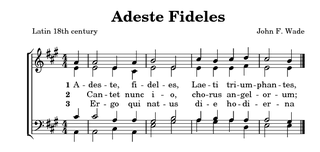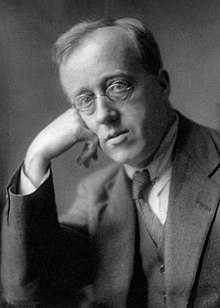
Isaac Watts was an English Congregational minister, hymn writer, theologian, and logician. He was a prolific and popular hymn writer and is credited with some 750 hymns. His works include "When I Survey the Wondrous Cross", "Joy to the World", and "Our God, Our Help in Ages Past". He is recognised as the "Godfather of English Hymnody"; many of his hymns remain in use today and have been translated into numerous languages.

The "Londonderry Air" is an Irish air that originated in County Londonderry, first recorded in the nineteenth century. The tune is played as the victory sporting anthem of Northern Ireland at the Commonwealth Games. The song "Danny Boy" written by English lawyer Fred Weatherly uses the tune, with a set of lyrics written in the early 20th century.

"Gott erhalte Franz den Kaiser" was a personal anthem to Francis II, Emperor of the Holy Roman Empire and later of the Austrian Empire, with lyrics by Lorenz Leopold Haschka (1749–1827) and music by Joseph Haydn. It is sometimes called the "Kaiserhymne". Haydn's tune has since been widely employed in other contexts: in works of classical music, in Christian hymns, in alma maters, and as the tune of the "Deutschlandlied", the national anthem of Germany.
"I Vow to Thee, My Country" is a British patriotic hymn, created in 1921 when music by Gustav Holst had a poem by Sir Cecil Spring Rice set to it. The music originated as a wordless melody, which Holst later named "Thaxted", taken from the "Jupiter" movement of Holst's 1917 suite The Planets.

"O for a Thousand Tongues to Sing" is a Christian hymn written by Charles Wesley. The hymn was placed first in John Wesley's A Collection of Hymns for the People Called Methodists published in 1780. It was the first hymn in every (Wesleyan) Methodist hymnal from that time until the publication of Hymns and Psalms in 1983.

Frances Ridley Havergal was an English religious poet and hymnwriter. Take My Life and Let it Be and Thy Life for Me are two of her best known hymns. She also wrote hymn melodies, religious tracts, and works for children. She did not occupy, and did not claim for herself, a prominent place as a poet, but she carved out a niche for herself.

The Canticle of the Sun, also known as Canticle of the Creatures and Laudes Creaturarum, is a religious song composed by Saint Francis of Assisi. It was written in an Umbrian dialect of Italian but has since been translated into many languages. It is believed to be the first work of literature written in the Italian language with a known author.

Martin Edward Fallas Shaw was an English composer, conductor, and theatre producer. His over 300 published works include songs, hymns, carols, oratorios, several instrumental works, a congregational mass setting, and four operas including a ballad opera.

"Recessional" is a poem by Rudyard Kipling. It was composed for the Diamond Jubilee of Queen Victoria, in 1897.
"For the Beauty of the Earth" is a Christian hymn by Folliott S. Pierpoint (1835-1917).
"How Great Thou Art" is a Christian hymn based on an original Swedish hymn entitled "O Store Gud" written in 1885 by Carl Boberg (1859–1940). The English version of the hymn and its title are a loose translation by the English missionary Stuart K. Hine from 1949. The hymn was popularised by George Beverly Shea and Cliff Barrows during Billy Graham's crusades. It was voted the British public's favourite hymn by BBC's Songs of Praise. "How Great Thou Art" was ranked second on a list of the favourite hymns of all time in a survey by Christianity Today magazine in 2001 and in a nationwide poll by Songs Of Praise in 2019.
Jaroslav Vajda was an American hymnist.

A hymn tune is the melody of a musical composition to which a hymn text is sung. Musically speaking, a hymn is generally understood to have four-part harmony, a fast harmonic rhythm, with or without refrain or chorus.

The alma mater of the University of Pittsburgh was adopted soon after the University changed its name in 1908 from the Western University of Pennsylvania to its current moniker. Lyrics were written by George M. P. Baird, class of 1909 and were set to the tune of what was then the Austrian National Anthem. A new tune for the "Alma Mater" hymn was composed by Charles W. Scovel, class of 1883, but it was not widely adopted and was either lost or became obscure.

"Come, Ye Thankful People, Come" is an English Christian harvest festival hymn written in 1844 by Henry Alford. It is most often sung to the tune St. George's Windsor by George Job Elvey.

Psalm 66 is the 66th psalm of the Book of Psalms, beginning in English in the King James Version: "Make a joyful noise unto God, all ye lands". In the slightly different numbering system of the Greek Septuagint version of the Bible and the Latin Vulgate, this psalm is Psalm 65. In Latin, it is known as "Iubilate Deo omnis terra". It is a psalm of thanksgiving probably intended for use at the Passover. The psalm is divided into two parts: in verses 1-12 the community praises God and invites the whole world to join in praise; in verses 13–20, "an individual from the rescued community fulfils a vow to offer a sacrifice of thanksgiving".
Singing the Living Tradition is a hymnal published by the Unitarian Universalist Association.

"And Can It Be That I Should Gain?" is a Christian hymn written by Charles Wesley in 1738 to celebrate his conversion, which he regarded as having taken place on 21 May of that year. The hymn celebrates personal salvation through the death and resurrection of Jesus, and is one of the most popular Methodist hymns today.
"Christians, awake, salute the happy morn" is an English Christmas hymn on a text by John Byrom. It is usually sung to the tune "Yorkshire" by John Wainright.














